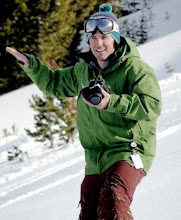"Something up above was calling him imperiously, and he made for the steep little tunnel which answered in his case to the gravelled carriage-drive owned by the animals whose residences are nearer to the sun and air" (2).
I feel we each have small epiphanies on a near daily basis. Something drives us to act, something drives us to go to the gym, something tells us to make mac and cheese, something inspires us to complement someone else. These miniature epiphanies that inspire action are mostly inconsequential. I would even say they may not be epiphanies at all but for the sake of my argument, I believe they are no matter how tiny.
It's the most basic epiphany. A call to action. Something, though that something isn't revealed, drives Mole to emerge from his tunnel. And like Mole who digs out of his tunnel because of "something" to find a whole unbelievable world, sometimes these little epiphanies lead to something much bigger.
I remember sitting in my US 101 class first semester freshman year. I'd come to MSU for the skiing and the Mechanical Engineering program. A typical story for incoming freshman. I was in my own "underground" where "nothing can happen to you, and nothing can get at you. You're entirely your own master, and you don't have to consult anybody or mind what they say " (68) I hardly realized it but I was unhappy. I hated what I was doing. Yes, my parents loved what I was doing, preparing myself for some future high tech lab job. Yes I could keep telling myself and others that I was a freshman studying Mechanical Engineering and I was in such and such a design class and such and such a math class but I hated the sound of it. I hated the taste it left in my mouth.
I remember reading Paulo Coelho's book "The Alchemist" in that same US 101 class. I followed story of the boy in search of his "Personal Legend" with intense interest. I seemed to be following my own omens: apathy in my math classes, increasing curiosity in literature, right along with the boy.
"You will never be able to escape from your heart. So it's better to listen to what it has to say. That way, you'll never have to fear an unanticipated blow." (Coelho 131) It was if the Alchemist was speaking to me and not to the boy... my heart wasn't in Mechanical Engineering.
"The Alchemist" was my English epiphany. I knew as soon as I read it I couldn't spend my life crunching numbers or staring at Auto CAD. I new my "Personal Legend" was in the "Language of the World." "[I] had not a cent in [my] pocket, but [I] had faith (Coelho 44)" and "Courage is the quality most essential to understanding the Language of the World (Coelho 113)" I needed courage because to a 18 year old freshman, "job security" and "financially stable future" came from Mechanical Engineering and not English Literature. Never-the-less I chose English Literature, after a brief tryst into English Teaching, and I haven't regretted it since. And those concerns that plagued my 18 year old self have long faded.
"The Alchemist" was a catalyst, a call to action, and an epiphany much like Mole's. It was something simple that, according to Badger occurs "if your ideas get larger and you want to expand--why, dig and scrape, and there you are!" out of the underground, "and there the things are, waiting for you." (68).
I have to agree with Mole, it's an incredibly beautiful and exciting world up here...I can't wait to see the river.

No comments:
Post a Comment